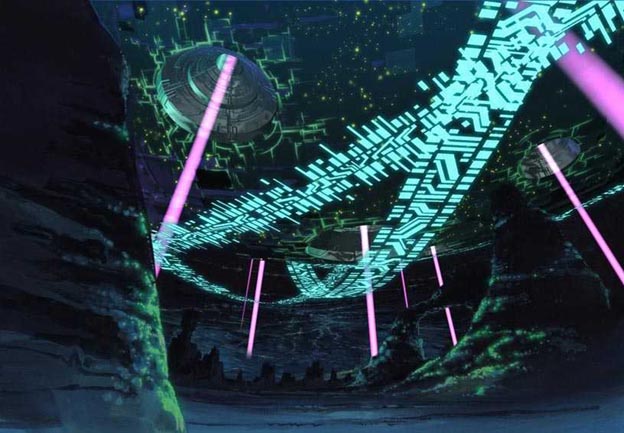
“I’ve never gotten my grades online before,” my friend told me in the last week of the fall semester. She sounded concerned, as if this new format meant that she would have to go on an epic quest to retrieve her grades. In fact, in the week or two that we were all eagerly (and anxiously) awaiting our grades, at least two of my friends asked me where exactly they were supposed to go to get them. Granted, the myFordham portal isn’t always the easiest to navigate, though once you customize it it’s a whole lot better. But I didn’t really realize getting grades online was such a big deal until this semester. Through high school I got grades mailed to me (snail mail, not email), but since I entered college I’ve always gotten my grades online one way or another. The constant “refreshing” that occurs over winter break and in the beginning of the summer has become familiar to me.
So has, to one extent or another, using the internet for class discussion or for getting/submitting homework assignments. Again, this definitely didn’t happen for me until college. But as soon as I hit freshman year, BlackBoard or something of the kind became a part of every day life. Participating in online discussions or posting assignments online (for public viewing or for the professor’s eyes only) became expected rather quickly. Printing costs became part of textbook costs. As my social life migrated to Facebook, my educational life entered the digital world alongside it.
As the recent Wired article about the new Tron movie makes clear, our world and the digital world are more interconnected than ever before (and, by the way, if you haven’t seen Tron: Legacy, you totally should. It was amazing). When the first Tron movie was released in the 80’s, the idea of cyberspace was completely foreign, and people thought it was weird that a company like Disney was even making a film like this. The movie flopped. But “today, people think they’ve been to cyberspace,” says Adam Rogers. This accounts for the millions of dollars put into the newly revamped Tron franchise. And the fact that there’s even a magazine like Wired (founded in 1993) shows how much our culture has changed.
Academia, however, always lags a little behind technological developments. Especially the humanities. Though science and even social science departments obviously have to catch on relatively quickly to stay relevant and competitive, the humanities are always scrambling to catch up. I don’t know how many jokes I’ve heard about how English professors (I guess English is the humanity of the humanities?) are the worst at using everything from BlackBoard to projectors.
But this year, at the MLA conference, digital work in academia, specifically in the humanities, was finally being discussed seriously. According to an article in the Chronicle these issues finally started getting attention in December of 2009. But it wasn’t until this month’s meeting that “the rising generation made itself heard in a big way.” Of course, we’re still in the defining stages—“what is a digital humanist?” is still a major question. Even though many humanities professors have by now embraced (successfully or not so successfully) the use of technology in the classroom, the place of digital work and research in academia (e.g. "the critical-code studies" mentioned as the future of the history field) is still undefined. (Interesting personal side note: my 7th grade English teacher is totally mentioned in that Chronicle article. Small world.)
So…will the humanities finally catch up with the sciences in this technological era? The humanities and the sciences are always paired…“College of Arts and Sciences” is a common university division, and our own GSAS pairs the two. But, when it comes to technology, "humanities" as a category always seems to be the ugly rejected stepchild struggling to find its fairy godmother and break the spell of being stuck in the past (and remember people: this is coming from an English major who still wants to smell real paper books). So…is this the beginning of a real change? Are the humanities finally embracing the sciency things they once feared? The fact that things like Wired and even Tron are now simply a part of popular culture is probably a good sign. But the MLA conference topics are probably the real signals of progress.
No comments:
Post a Comment